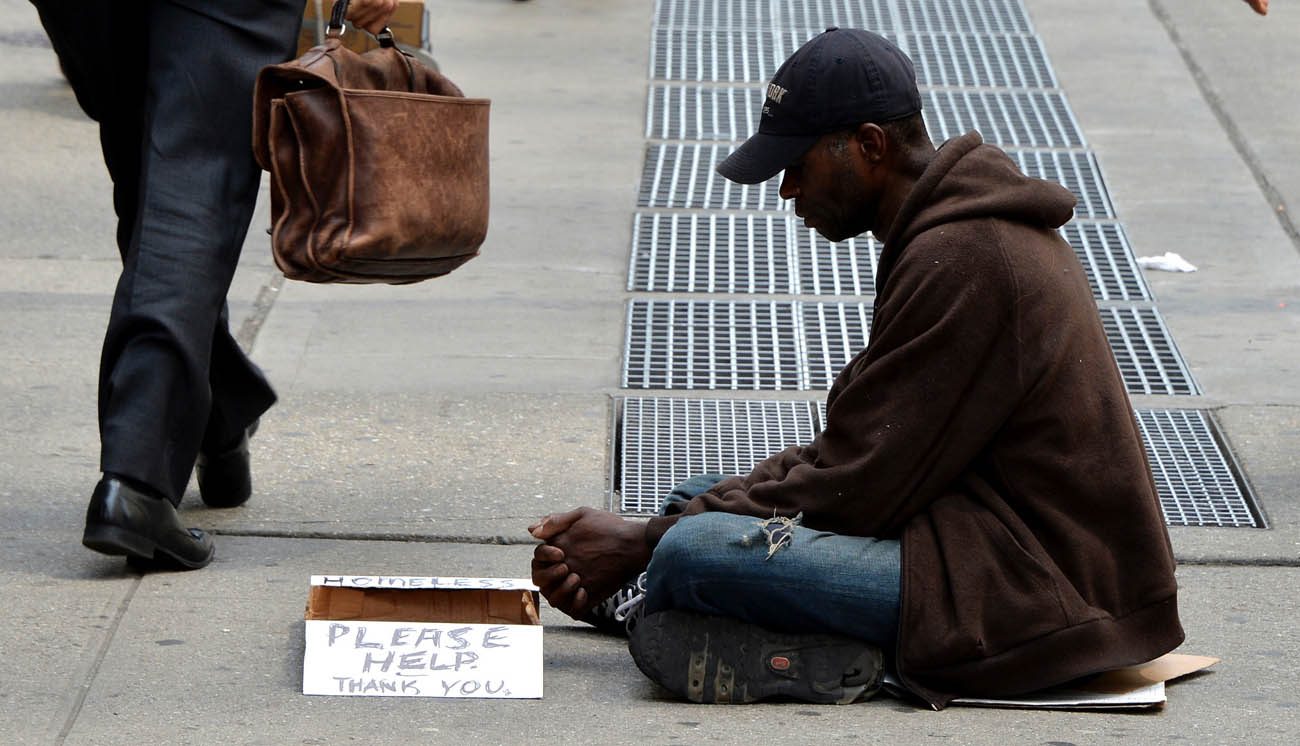WASHINGTON (CNS) — While 3.5 million fewer Americans were living in poverty and the median household income grew 5.2 percent in 2015, advocates maintain that there’s much more work ahead to help the country’s 43.1 million poor in their struggles to obtain affordable housing, feed their families and find well-paying jobs.
“The (poverty) statistics went down, but there’s still a lot of work to do,” Sheila Gilbert, president of the Society of St. Vincent de Paul’s national council, told Catholic News Service.
“I would suspect that probably the ones that were the closest to coming out of poverty and had the most resources were the ones who were able to come out of poverty. Those who are further down the line are still in poverty,” she said.
[hotblock]
The Census Bureau reported Sept. 13 that the poverty rate declined to 13.5 percent last year from 14.8 percent in 2014.
In addition, federal statistics show that median household income rose to $56,515 in 2015, an increase from $53,718 a year earlier. The figure represents the first annual increase in median household income since 2007, the year before the onset of the Great Recession.
Even with the rise in incomes, the 2015 levels still fall short of peak median incomes recorded in 1999.
In the same announcement, the Census Bureau said the percentage of people without health insurance coverage in all of 2015 stood at 9.1 percent, down from 10.4 percent in 2014. The figure represents a decline in the number of people without health insurance from 29 million last year from 33 million the year before.
Michael O’Rourke, policy adviser in the Office of Domestic Social Development at the U.S. Conference of Catholic Bishops, called the numbers “encouraging.”
However, he told Catholic News Service after looking at various analyses of the statistics, “that wherever we are, we’re still not where we’d like to be. You still have families who are not feeling their incomes move.”
Brian Corbin, executive vice president, member services at Catholic Charities USA, was excited about the economic progress and said that member agencies across the country had seen a slight decline in the number of people seeking social services in the last year.
“The economy is improving and that’s a very good thing,” Corbin said. “People are getting jobs to help pull out of poverty. Like everything else, we have to keep on moving, keep on working to help people’s lives.”
Where Catholic Charities agencies are seeing an increased need, however, Corbin said, is among individuals and families in who live just above the poverty line: $11,880 in income for single people and $24,300 for a family of four. While not technically living in poverty, Corbin described people in such situations “the working poor” and they are a step away from a crisis.
People in such circumstances can be thrust into a financial crisis if they suddenly are faced with a $1,000 car repair or another unexpected expense, he explained.
“At a certain level of income, they can access government programs. But if you’re just at the line or above where people don’t have the safety net, we’re seeing people who come to us who have multiple problems,” he said.
Of even more concern to the advocates is the high level of poverty among children identified in the Census Bureau statistics. Nearly one in five children — 19.7 percent or about 14.5 million — lived in poverty in 2015, according to the data. In 2014 about 15.5 million were in poverty. O’Rourke called their situation disturbing.
[hotblock2]
“We’re still living in a society where the burdens of poverty are being borne most severely by our kids,” he said. “We shouldn’t normalize this. Our eyes should not glaze over when we see something like this. This is something that should be troubling to us right now. I think there’s a moral imperative to do something right now.”
O’Rourke is planning a webinar for Oct. 4 to discuss the census statistics with social service providers and poverty-fighting agencies to encourage them to continue advocating for continued federal funding of vital social service programs.
The three advocates also expressed hope that the downward trend in poverty and the upward movement in incomes will continue.
“When you’re coming into an election year like this and everything could change drastically, it’s hard to know who’s going to be in power and understand what that means,” Gilbert told CNS. “That’s where prayer comes in and real belief the Holy Spirit is the one who’s behind this process. I think it the Holy Spirit who’s waking us up. I don’t think the Holy Spirit will stop on this.”
PREVIOUS: Archbishop: Study shows ‘urgent need’ for dialogue with other faiths
NEXT: N. Carolina bishop calls all to pray for peace and justice in Charlotte




Share this story